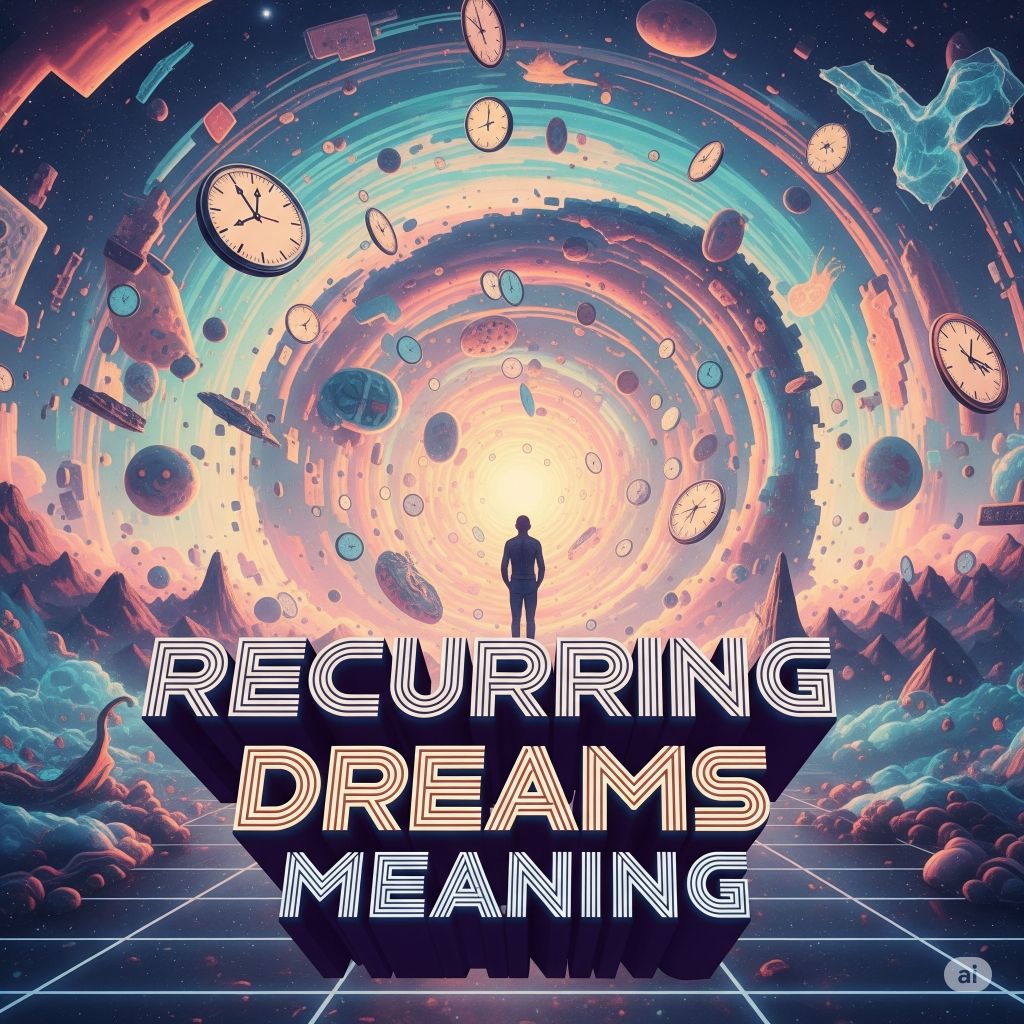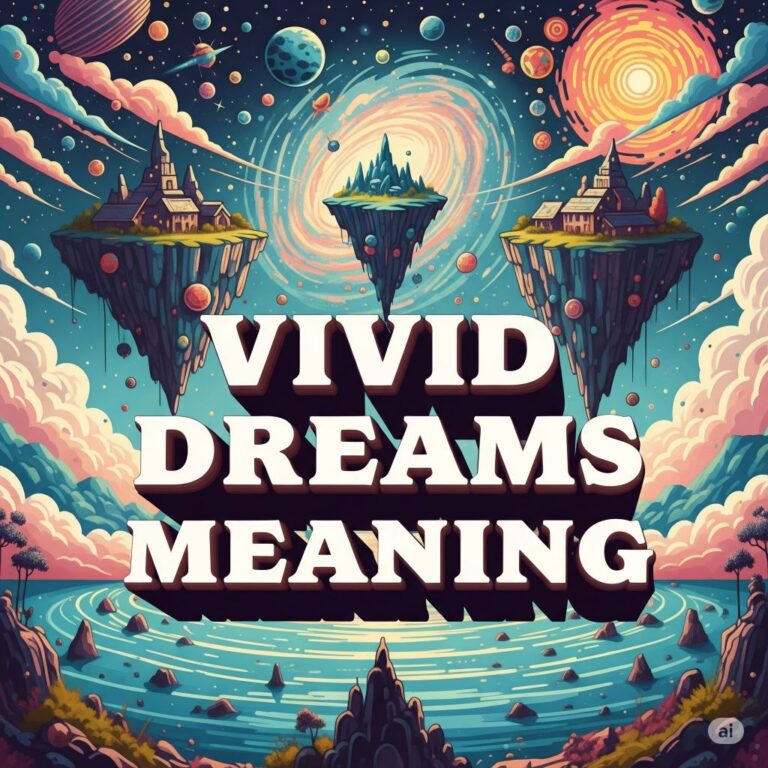
Here is a thorough, organized exploration of Recurring Dreams—including their meaning, psychology, symbolism, cultural interpretations, causes, and practical insights.
What Are Recurring Dreams?
Recurring dreams are dreams that repeat themselves over days, weeks, months, or even years. The repeated content might involve the exact same scenario, storyline, setting, emotions, or themes, though minor details may vary. These dreams are so common that research suggests most people experience recurring dreams at least once in their lives.
Key Features
- Repetition: The core scene, conflict, or event replays across multiple nights.
- Difficulty to Resolve: Often, the dream ends unresolved, with the same feelings or outcomes repeating.
- Strong Emotions: Recurring dreams tend to evoke strong emotions—anxiety, fear, helplessness, nostalgia, or sometimes delight.
- Vivid Recall: Frequently recurring dreams are often more memorable, sometimes clear even years afterward.
Psychological Explanations
Recurring dreams are most often viewed by psychologists as the subconscious mind’s way of working through unresolved issues, emotions, or stresses.
1. Emotional Processing
The brain uses dreams to process emotional challenges. When an issue isn’t fully addressed or resolved in waking life, the subconscious may replay it, prompting you to pay attention and work through it.
2. Stress and Anxiety
Periods of change, ongoing stress, trauma, or transitions can trigger recurrences, especially when the person feels stuck in a situation or emotional state.
3. Trauma and PTSD
Those who’ve experienced trauma may relive aspects of the event in their dreams. For some, the dream stays the same for years (such as returning to the scene of an accident).
4. Self-Discovery
Recurring dreams may highlight a spiritual, creative, or personal lesson that your psyche wants you to learn, indicating areas of growth or change.
5. Personality Type
Certain personality traits—such as high imagination, sensitivity, or introspection—are linked to more frequent recurring dreams.
Common Recurring Dream Themes
| Theme | Interpretation |
|---|---|
| Being chased | Avoiding a situation, fear of confrontation |
| Falling | Feeling overwhelmed, loss of control |
| Failing an exam | Fear of inadequacy, unpreparedness |
| Losing teeth | Anxiety about appearance, loss, powerlessness |
| Unable to move/speak | Helplessness, being “stuck” in life |
| Being late | Stress about missing out, time management worries |
| Being unprepared/naked | Vulnerability, social anxiety, fear of exposure |
| Missing transportation | Missed opportunities, fear of change or transition |
| Locked in or trapped | Feeling stuck in a relationship or situation |
| Searching for someone/place | Seeking connection, purpose, or unresolved desires |
It’s important to note that while these interpretations are common, symbolism in dreams is highly personal and may vary by individual experience, culture, and current life circumstances.
Symbolic and Archetypal Interpretations
- Carl Jung theorized that recurring dreams feature universal archetypes (ex: shadow, hero, child) attempting to be integrated into consciousness.
- Recurring dreams sometimes act as a signal from the “higher self” or unconscious, encouraging personal development or self-acceptance.
- In dream dictionaries, specific images (teeth, falling, water) often have traditionally assigned meanings, but personal associations are key.
Cultural Perspectives
- Native American and Indigenous Cultures: Recurring dreams are regarded as powerful messages from ancestors or spirit guides that should be heeded.
- Ancient Egypt & Greece: Recurring dreams, especially those that seem prophetic, were interpreted as divine messages requiring ritual, offering, or change.
- Eastern Beliefs: Buddhists and Hindus sometimes see recurring dreams as karma or unfinished business from this or past lifetimes.
- Modern Western: Recurring dreams are often a psychological concern—an “emotional alarm” signaling the need for waking-life changes.
What Causes Recurring Dreams?
- Unresolved Stress or Anxiety: The most common trigger; issues that are ignored or suppressed tend to “come back” in dreams.
- Major Life Transitions: Changes in job, relationship, health, or family can create subconscious uncertainty or longing.
- Trauma: Past traumas (recent or childhood) can replay in the sleeping mind until they’re processed or healed.
- Physical Factors: Sleep disorders, certain medications, or sleep deprivation may increase the likelihood.
- Habit and Memory: If a dream made a strong impact once, the memory trace may trigger repeats, especially during similar emotional states.
Are Recurring Dreams Bad?
Not at all! While some recurring dreams are distressing (nightmares), others can be empowering or enlightening. Their persistence means your subconscious considers their message important.
How to Work With Recurring Dreams
- Dream Journaling:
Write down recurring details, emotions, and changes to notice patterns or triggers. - Reflect on Waking Life:
Identify what might be unresolved, echoing, or avoided. Ask “What does this remind me of?” or “Where do I feel this emotion when awake?” - Dream Exploration:
Practice lucid dreaming to change the outcome or confront fears within the dream. - Therapy and Support:
For trauma-related recurring dreams or if they cause anxiety, consider speaking with a counselor or therapist. - Creative Expression:
Paint, write, or enact your dream to process deeper meanings.
When Do Recurring Dreams End?
Often, recurring dreams subside or change when the underlying issue is acknowledged, addressed, resolved, or when significant life changes occur that “release” the trapped energy or emotion.
Summary
Recurring dreams are like messages sent repeatedly by the subconscious mind, urging attention to something unresolved or deeply felt. Whether stressful, meaningful, or comforting, they offer valuable insight into our emotions, challenges, and life path. Understanding and engaging with them can lead to growth, healing, and greater self-awareness.






